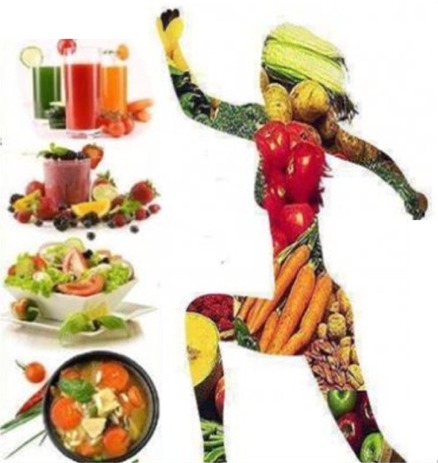 Anti Inflammatory foods – Great of reducing inflammation and keeping your immune system healthy, without side effects!
Anti Inflammatory foods – Great of reducing inflammation and keeping your immune system healthy, without side effects!
Inflammation is the way our immune systems react to infection, irritation or injury. When you sprain your ankle playing basketball and it swells up for instance, that’s inflammation. The doctor tells you to take ibuprofen as an anti-inflammatory and you get to lie on the couch watching sports for a couple of days instead of playing them badly.
Inflammation is a normal response to these kinds of stresses, and it’s a natural part of healing. But chronic inflammation can have a negative effects on your body and your health–as can the use of steroids and NSAIDs like ibuprofen.
Introducing anti-inflammatory foods to your diet is a great way to fight the inflammation that comes from the stresses of modern life. Here are five to get you started!
- Almonds – Almonds are an great source of monounsaturated fats, similar to those found in olive oil, as well as vitamin E and manganese. They’re also a great source of magnesium. Eating almonds has also been shown to reduce your risk of cardiovascular disease. Another great thing about almonds is that they pack quite a punch for such a small, yet healthy food. A handful of almonds will keep you satisfied for much longer and with more healthy benefits than and equal amount of almost any other food.
- Avocados – Avocados are also rich in monounsaturated fats, which are great for your heart, plus they’re an great source of magnesium, fiber and potassium. They are also low in sodium, improving their heart-healthy profile even more. Eating half an avocado day is a natural way to up your daily intake of vitamins C, A, E, and B-complex vitamins. They’re a great combination of nutrients and antioxidants that make them a go-to item for any anti-inflammatory diet.
- Broccoli – Broccoli is a cruciferous vegetable, like cauliflower, cabbage and kale that are high in phytochemicals called glucosinolates, a powerful antioxidant. Broccoli is also an excellent source of vitamin C, potassium, calcium and vitamin A, and is incredibly low in calories to boot. Studies show that eating a diet high in cruciferous vegetables, including broccoli, can lower your risk of certain types of cancer.
- Blueberries – Blueberries are a great source of antioxidants, containing significant amounts of polyphenols that trigger antioxidant activity and help to prevent cancer and cardiovascular disease. These phytochemicals, which also include flavonoids, anthocyanidins, phenolic acids, and tannins, help to prevent and repair the cellular damage done by free radicals. Studies have also shown that the chemicals in blueberries help to prevent cancer by slowing down the growth of cells, and reducing inflammation.
- Carrots – You were always told as a kid to eat your carrots because they will help you see at night, and there is truth in that. Carrots contain beta-carotene, which your body converts to vitamin A, which is necessary for good eyesight. Plus it’s a powerful antioxidant. Carrots also contain zeaxanthin and lutein. Eating a diet rich in these antioxidants can help reduce your risk of cancer because it helps to prevent damage to the healthy cells of your body.
http://nutrition.about.com/od/What-Are-Healthy-Foods/ss/17-Anti-Inflammatory-Foods.htm?utm_content=6325100&utm_medium=email&utm_source=cn_nl&utm_campaign=livinghealthy&utm_term=#showall
